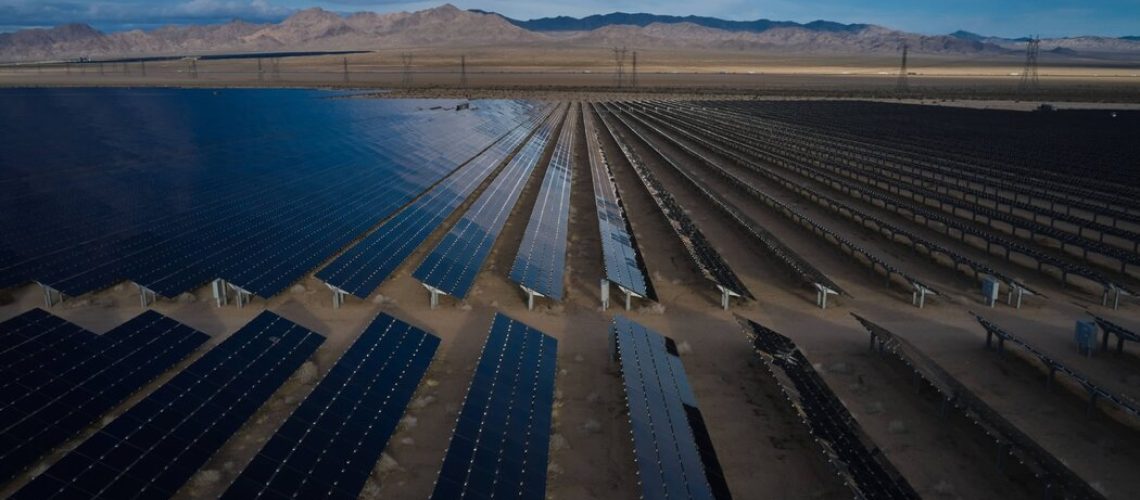First Solar, a leading U.S. solar panel manufacturer, said on Tuesday that an audit by the company had found that migrant workers in its operations in Malaysia were victims of forced labor.
The internal audit, which was included in a corporate sustainability report, found that four subcontractors in Malaysia had charged the workers recruitment fees in their home countries and withheld their pay and passports.
U.S. officials and human rights activists have become increasingly concerned about the use of forced labor in the manufacture of solar panels, most of which takes place in Asia.
Global supply chains for solar panels have for years relied on China, in particular for polysilicon, a crucial component in most solar panels made around the world. But a recent ban on products from Xinjiang, a region where the U.S. government and United Nations accuse the Chinese government of committing human rights violations, including forced labor, has led to a shift away from China.
Some producers like First Solar, which is based in Tempe, Ariz., and has factories in the United States and overseas, also have factories in Southeast Asia to make solar panels.
First Solar produces a solar panel that does not use polysilicon and, as a result, appeared immune from the supply chain concerns related to Xinjiang. The company said it was making the audit public in part to raise awareness of the kinds of practices it discovered.
“We highlight this information openly, not only because of our commitment to transparency and Responsible Solar, but also to raise awareness of modern slavery risks that hide in plain sight,” Mark R. Widmar, chief executive of First Solar, said in a statement. “Our industry’s work to power the energy transition and enable the fight against climate change does not serve as credits to offset its social and human rights obligations.”
The company said it is requiring the four subcontractors to change how they treat workers and agree to periodic reviews by First Solar to ensure that they are no longer using forced labor.
The growing demand for renewable energy resources like solar panels for the clean energy transition has increased concern that companies have become more exposed to equipment produced from forced labor. Two recent reports highlighted the potential exposure of the renewable energy supply chain to forced labor.
“The demand for clean panels is outstripping the supply,” Laura T. Murphy, a professor of human rights and contemporary slavery at Sheffield Hallam University in England, said during a recent interview. Ms. Murphy provided analysis for one of the recent reports on forced labor in the solar panel supply chain.
Walk Free, an international human rights group, estimates that 50 million people around the world lived under forced labor conditions in 2021, about 10 million more than in 2016. The organization attributed part of that growth to the rapid increase in renewable energy to address climate change.
Much of the concern around forced labor in the solar industry has focused on Xinjiang, where the Chinese government runs work programs that human rights organizations deem coercive. But moving supply chains out of China does not always resolve companies’ problems.
Investigations in recent years of other factories in Malaysia that produce products like high-end clothing have found evidence of forced labor with migrants hired from countries like Vietnam, Myanmar, Nepal and Bangladesh.
Still, Ms. Murphy said that there was a key difference between forced labor issues in Southeast Asia and in Xinjiang, where the Chinese government prevents companies from doing the type of audit First Solar had conducted.
“What First Solar has done is the critical due diligence that all companies need to do around the world to ensure they are identifying and remediating forced labor in their supply chains,” Ms. Murphy said. “It does happen, and companies have to be on the lookout for it.”
In addition to Malaysia, First Solar has factories in Ohio and Vietnam. The company is rapidly expanding its manufacturing operations, including the construction of a research and development center in Ohio and by building factories in India, Alabama and Louisiana.
The company said it would continue to use a third party firm to ensure that its partners do not engage in forced labor practices. In addition to conducting its own audits, First Solar has joined the Responsible Business Alliance, a group that supports the rights and well-being of workers.
The Solar Energy Manufacturing for America Coalition, which represents solar manufacturers based in the United States, has said that forced labor in foreign countries highlights the need for more domestic production. First Solar and other manufacturers have ramped up manufacturing in the United States with the help of incentives in the Inflation Reduction Act.
But the country will need to spend tens of billions of dollars over many years to catch up to the big lead China has established in producing solar panels, a business that tends to earn relatively modest profits and requires significant continuing investment in new technology.
“We have to acknowledge that it’s not like our competitors have stopped running,” said Michael Carr, executive director of the solar energy coalition. “They’ve got a few laps on us. We can’t pretend that it’s not going to be a challenge.”



